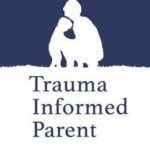Family Engagement
Wonderopolis® is a place where natural curiosity and imagination lead to exploration and discovery in learners of all ages. Each day, they pose an intriguing question—the Wonder of the Day®—and explore it in a variety of ways.
This webinar series is an opportunity for stakeholders representing national, regional, and local organizations to learn about family, school, and community, engagement research, best practices from the field, and new innovations that are making a difference in school improvement and student learning.
Trauma Informed Parent is an educational page offering information, resources, and perspective for parents and caregivers of children, teens, and young adults who have experienced trauma or adverse childhood experiences.
The Family Engagement Playbook is a collection of promising research-based approaches to strengthen individual competencies, interpersonal relationships, and organizational structures that build capacity for meaningful co-created family engagement. The Playbook offers ideas, models, and tools that can be easily integrated into any training, continuing education, and organizational learning opportunities in a variety of settings, including higher education, schools, early childhood programs, afterschool programs, and libraries, among others.
In this article, “The Eight Ps of Parent Engagement”, written by neaToday, learn about different components of parent engagement.
The Annie E. Casey Foundation offers its latest installment to provide information on kinship diversion policies through this analysis report of state-by-state surveys of kinship care policies. Findings are based on 33 state respondents who have policies allowing kinship diversion. The Annie E. Casey Foundation defines kinship diversion as placement of a child with relatives or close family friends as an alternative to a child welfare agency taking custody and placing the child in formal foster care.
The Greater Good Science Center launched the Youth Gratitude Project (YGP) as part of the broader Expanding the Science and Practice of Gratitude, a multiyear project funded by the John Templeton Foundation. In addition to advancing the knowledge of how to measure and develop gratitude in children, the YGP created and tested a new gratitude curriculum for middle and high schoolers.
The main idea of the YGP curriculum is that varied gratitude practices should help students feel more socially competent and connected, be more satisfied with school, have better mental health and emotional well-being, and be more motivated about school and their future. Preliminary evidence for the effects of the gratitude curriculum indicate that it is helping to decrease depression, anxiety, and antisocial behavior and increase hope, emotional regulation, and search for purpose.
This curriculum features four lessons to help students understand the meaning of gratitude and how to cultivate it in their everyday lives.
Teaching for Change works to build social justice in the classroom by encouraging professional development and parent organizations and sponsoring the Cross City Parent Leadership Initiative that acts as an opportunity for parent coordinators and parents to gain the tools to facilitate effective family-school programs.
This resource provides an overview of evidence-based strategies that schools and districts may use to promote equitable family engagement practices.
Springboard Connect is a web-app that provides tips, resources, and reminders to support parents as reading coaches to their children. Families can set goals, practice strategies, and track progress.
SEDL helps bring together families, communities, and schools to support students’ academic achievement. They work strategically at the state and federal levels to support efforts to improve parent involvement and partnerships among schools, families, and communities. They develop and disseminate research-based resources on building family and community partnerships that are focused on student success.
“Seven Positive Strategies for Managing Aggressive Behavior in Young Children” is an article published by Kidpower to help adults in effectively managing aggressive behavior in young children.










